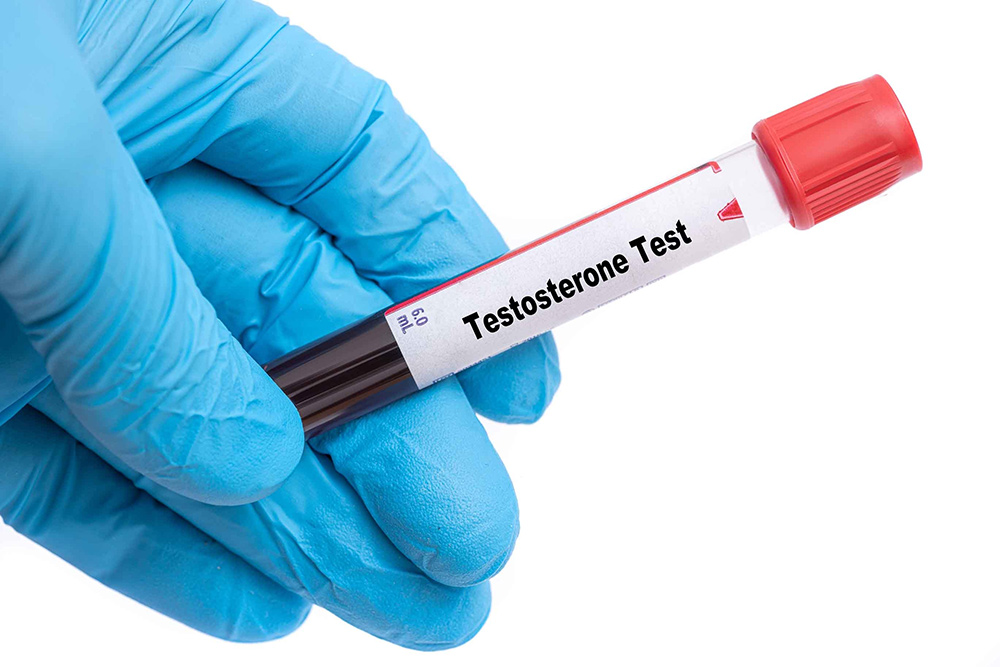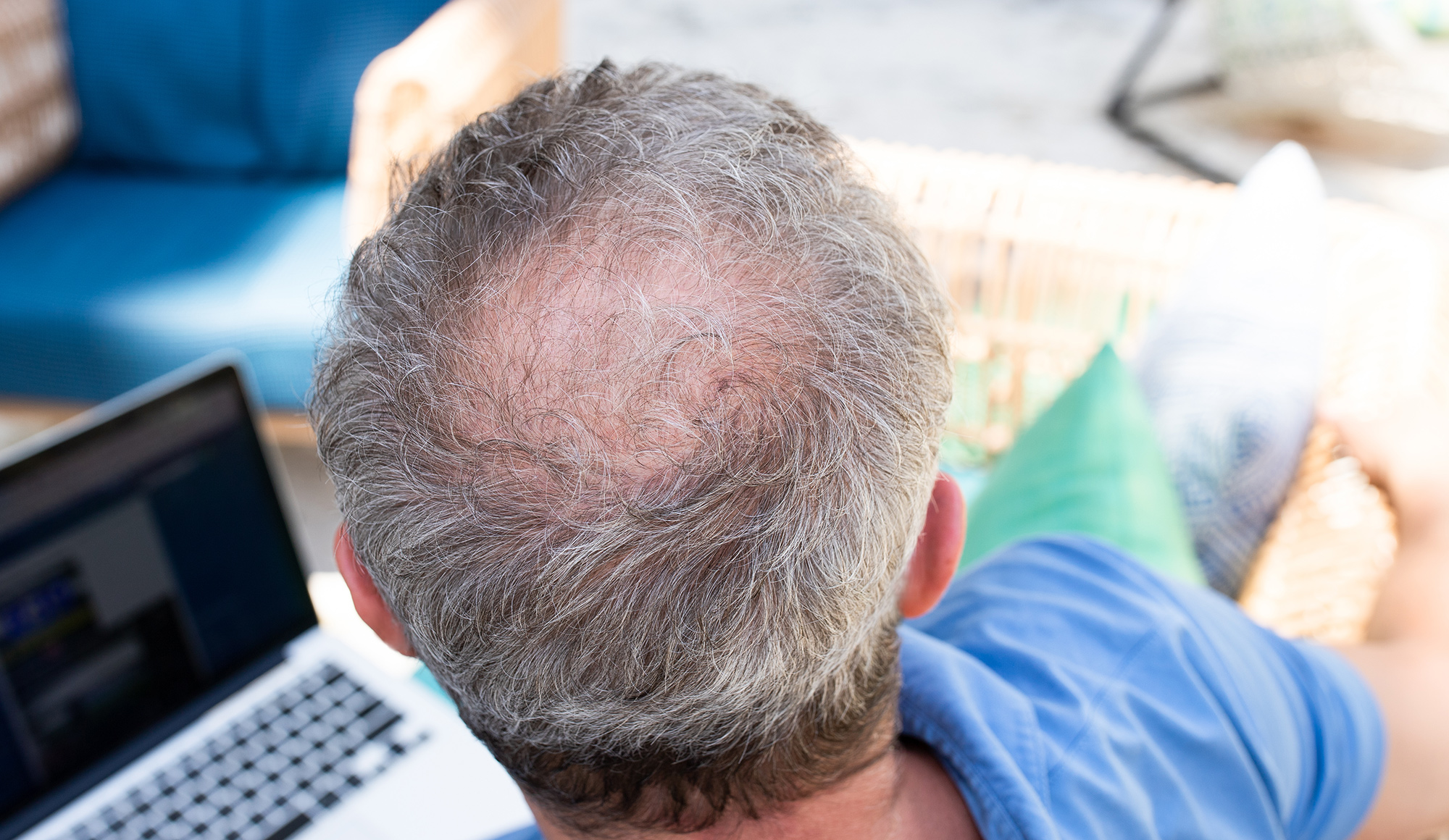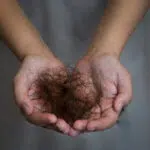Can Testosterone Levels Lead to Hair Loss? Here’s What Science Says
Last updated on August 19, 2025
If you’ve noticed thinning hair and suspect hormones are involved, you’re not alone. One of the most common questions people ask at our hair loss clinic is: Can testosterone cause hair loss? The short answer is yes, but the full story is more nuanced. Not all testosterone is to blame, and not everyone taking testosterone will go bald.
In this article, we’ll break down how testosterone impacts hair growth, what role dihydrotestosterone (DHT) plays, and what you can do if you’re experiencing hormone-related hair loss.
Understanding testosterone and hair loss
Testosterone is a crucial hormone for both men and women. In men, it supports muscle growth, libido, and energy. In women, it’s present in smaller amounts and helps maintain bone density and mood. But when it comes to hair loss, testosterone itself isn’t the direct culprit—it’s what it turns into.
DHT: The real problem
The key player in hormone-related hair loss is dihydrotestosterone (DHT), a byproduct of testosterone. When testosterone interacts with an enzyme called 5-alpha-reductase, it converts into DHT. This more potent hormone binds to hair follicle receptors—particularly in genetically sensitive individuals—and shrinks them over time.
This process, called miniaturization, leads to:
- Thinner, weaker hairs
- Shortened hair growth cycles
- Delayed regrowth
- Eventual follicle shutdown if untreated
This form of hair loss is called androgenetic alopecia, or more commonly, male pattern baldness (and female pattern thinning in women).
Does high testosterone mean more hair loss?
If you are researching this issue, chances are you are susceptible to hair loss. Therefore, high testosterone, whether it is naturally occurring or supplemented, can result in permanent hair loss with both transplanted and non-transplanted hair. However, many men with high testosterone have full heads of hair, while others with average or low testosterone may experience significant thinning. The difference comes down to:
- Genetics: If your hair follicles are sensitive to DHT, you’re more likely to experience hormone-related hair loss
- DHT levels: Some people convert more testosterone into DHT than others
- Scalp receptor sensitivity: It’s not just about how much DHT you produce, but how strongly your follicles respond to it
So, even with normal testosterone, you can experience hair loss if your body has a high conversion rate to DHT or increased follicle sensitivity.
What about low testosterone?
Interestingly, low testosterone can also contribute to hair thinning—though in different ways. Lower levels of testosterone may disrupt the balance of hormones needed to support healthy hair growth. It can also indicate other underlying issues, like:
- Nutrient deficiencies
- Thyroid problems
- Stress or sleep deprivation
- Aging or medical conditions
If you’re experiencing fatigue, low libido, and hair loss at the same time, it’s worth having your testosterone levels checked—but also evaluating other contributing factors.

Our hair loss clinic in Raleigh, NC offers expert diagnosis and personalized treatment solutions to help you restore healthy growth.
Can women experience testosterone-related hair loss?
Yes. Although women have lower testosterone levels, they still produce DHT. If levels are elevated due to conditions like polycystic ovary syndrome (PCOS) or hormonal imbalance, DHT can cause diffuse thinning across the scalp, particularly around the part line and temples.
Hair loss in women caused by androgens tends to be more gradual and less predictable than in men, but it can still be distressing. Blood tests and a clinical scalp examination are often used to pinpoint the cause.
How do I know if my hair loss is hormonal?
Some signs that your hair loss may be hormone-related include:
- Thinning at the temples or crown (men)
- Widening part or overall diffuse thinning (women)
- Hair that grows slower and sheds more easily
- A family history of pattern baldness
- Onset during puberty, after childbirth, or during menopause
However, hormonal hair loss can overlap with other triggers like stress, illness, or poor nutrition. That’s why a proper medical evaluation is essential before starting treatment.
Can you treat DHT-related hair loss?
Yes—there are several effective ways to manage DHT-related hair loss, and early intervention is key. Treatments typically fall into two categories:
1. Blocking DHT production
Some medications (such as finasteride, for men) reduce the conversion of testosterone to DHT, slowing the progression of hair loss. These are prescription treatments and should be taken under medical supervision due to potential side effects. It must be noted that blocking DHT, a potent testosterone hormone, can result in permanent erectile dysfunction and other low testosterone symptoms known as post-finasteride syndrome.
2. Strengthening the hair and scalp
Non-hormonal treatments can support follicle health and promote regrowth. These include:
- Topical treatments that extend the growth phase
- Microneedling to stimulate blood flow and product absorption
- Growth Factor Therapy or Exosome Injections to rejuvenate the scalp naturally
- Low-level laser therapy (LLLT) to boost circulation and follicle activity
Expert help for hormone-related hair loss
Unfortunately, many doctors overtreat or undertreat low testosterone. This can result in permanent hair loss for both transplanted and non-transplanted hair. So Dr Arthur Zacco became certified in Anti-Aging Medicine to help his patients maintain proper hormonal levels [total testosterone levels, free testosterone levels, estrogen (estrone and estradiol) levels, DHT levels, Cortisol levels, etc], thus more effectively treating hair loss. Dr Arthur Zacco is unique in that he is an expert in Anti-Aging Medicine (including Hormone Replacement Therapy, HRT) and Hair Restoration.
If you think your hormones may be contributing to your hair loss, AZ Hair Restoration in Raleigh, NC, is here to help. Led by Dr. Arthur Zacco, who has over 30 years of experience in Hair Restoration and 18 years in Anti-Aging Medicine, our clinic specializes in identifying the true cause of hair loss and delivering personalized treatments. Schedule a Free consultation to benefit from his dual HRT and Hair Restoration expertise.
We offer:
- Growth Factor and Exosome Therapy
- Microneedling and laser treatments
- FUE and FUT hair transplants
At our clinic, all treatment plans are tailored to your individual needs after a thorough consultation with Dr. Arthur Zacco. We’re committed to honest advice, effective solutions, and natural-looking results.
FAQs
What is DHT and how does it affect hair growth?
DHT (dihydrotestosterone) is a more potent derivative of testosterone. In people with genetic sensitivity, DHT attaches to hair follicle receptors and gradually shrinks them. This weakens the hair, shortens the growth cycle, and can eventually lead to permanent loss if untreated.
Can women experience hair loss due to testosterone or DHT?
Yes. Women also produce testosterone and DHT in smaller amounts. Conditions like polycystic ovary syndrome (PCOS) or hormonal imbalances can raise these levels and lead to hair thinning—particularly along the part line or temples. A proper diagnosis is essential for women experiencing hair loss. Growth factor treatments can be very helpful. Check out a testimonial from one of our female patients, – call us today for a medically proven hair growth solution.
How do I know if my hair loss is caused by hormones?
Signs of hormone-related hair loss include thinning at the crown or temples (in men), widening parts or overall thinning (in women), and a family history of pattern baldness. Hair that grows back slowly or falls out easily can also be a clue. A scalp evaluation by a hair restoration physician and hormone testing can help confirm the cause. Book your hair loss consultation today at our Wake County, NC, clinic
What are the treatment options for hormone-related hair loss?
Treatment may include DHT-blocking medications, topical solutions, Exosome Treatments, microneedling, Growth Factor Treatment, or laser therapy to strengthen follicles and promote regrowth. FUE or FUT hair transplant surgery offers the gold standard in permanent hair restoration results. During your free consultation, Dr Arthur Aacco will meet with you and outline individualized treatment plans. Book a consultation today and get an effective, personalised hair regrowth plan. Check out a testimonial from one of our patients!








